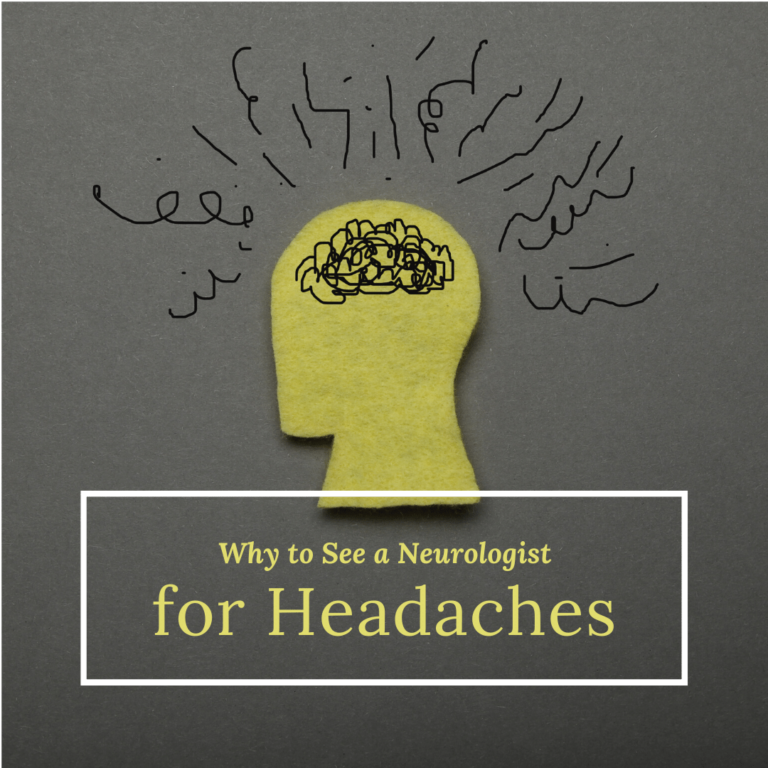Do you suffer from frequent or severe headaches or migraines? Do they make it difficult to go about your day-to-day life? If so, you should consider seeing a neurologist. Many people don’t realize that neurologists are specialists in treating headaches and migraines. In fact, they may be able to help you find relief from your headaches and migraines that you didn’t think was possible. In this blog, we will discuss what a neurologist is and why you should see one for headaches and migraines. We will also discuss some of the signs that indicate you should see a neurologist and what to expect during your appointment.
What is a Neurologist?
A neurologist is a medical doctor who specializes in the diagnosis and treatment of disorders of the nervous system. This includes the brain, spinal cord, and nerves. Neurologists have specialized training in how the nervous system works and how to diagnose and treat disorders that affect it. When it comes to headaches and migraines, they are often able to provide expertise and treatments that other doctors, such as general practitioners, cannot.
When to See a Neurologist
Whether you are experiencing headaches, migraines, or are unsure of which, you may be wondering when it is appropriate to see a neurologist. Some of the signs that indicate you should see a neurologist for headaches and migraines include:

- Frequent or severe headaches that make it difficult or impossible to go about your day-to-day life
- Headaches that are not relieved by over-the-counter medications
- You take over-the-counter headache medications regularly (5 or more days a month)
- Headaches that are accompanied by other symptoms, such as dizziness, nausea, or vomiting
- Headaches that are accompanied by neurological symptoms such as seizures or weakness on one side of the body
- Headaches that appear after a head injury
- You have more than two headaches a week
- Your headaches are getting worse
- Changes in your vision during or before a headache
- A family history of migraines
If you are experiencing any of these signs, it is important to see a neurologist so they can properly diagnose and treat your headaches. A neurologist can help by doing a complete evaluation and ordering tests, if needed. They will work with you to determine the cause of your headaches and develop a treatment plan to help you find relief.
What to Expect When Seeing a Neurologist for Headaches or Migraines
Once you’ve finally made an appointment with your local neurologist, you may be wondering what you should expect at your appointment. When you go to see a neurologist for your headaches or migraines, they will ask you questions about your headaches. It is important to provide a thorough headache history, since this is one of the best diagnosis tools. Before your appointment, take some time to consider the following:
- How often you have headaches/migraines and how bad they are
- If anything makes your headaches/migraines better or worse
- Do you experience vision changes before or during?
- How much sleep do you get?
- Whether certain activities, weather, foods, or drinks, contribute
- If the headaches/migraines occur during the menstrual cycle
- Any previous headache/migraine treatments you’ve used in the past
Discussing these various factors with your neurologist will help them to narrow down the potential causes of your headaches or migraines. This can also help when it comes to forming a treatment plan.
After discussing your headache history, the neurologist will also give you a physical exam. They may check your blood pressure and do a neurological exam. This involves checking your reflexes, strength, and sensation. This information can help your neurologist to determine your overall neurological health and it can also identify the cause of someone’s headaches or migraines. The neurologist may also order additional tests, such as an MRI or CT scan, to rule out other conditions.
After the neurologist has evaluated you, they will work with you to develop a treatment plan. This may include:
Medication:
The neurologist may prescribe medication to help relieve your headaches or migraines. There are two types of medications that are commonly used to treat headaches or migraines: preventive and abortive. Like their name suggests, preventative medications are used to reduce the frequency and severity of your headaches and migraines. Abortive medications, on the other hand, are designed to stop or decrease the throbbing of a migraine.
Botox injections:

If you experience chronic migraines, the neurologist may recommend Botox injections. Contrary to popular belief, Botox injections have a variety of other medical applications besides being a cosmetic treatment to decrease wrinkles. When botulinum toxin A is injected into the head and neck, this interrupts the pain pathway between the brain and spinal cord to provide migraine relief. However, this approach can take up to four weeks to work and requires more than a single set of injections to maintain results.
Headache Infusion Therapy:
Headache infusion therapy is a relatively new treatment for headaches and migraines. This type of therapy involves the intravenous delivery of medication directly to the blood vessels in the head. This helps to calm the nerve endings that initiate the events that lead to a migraine. approach is designed to provide relief from acute migraine headaches and it can also help to prevent future headaches. Treatment with headache infusion therapy generally lasts for about 1 month.
In Conclusion
In this blog post, we discussed why one should see a neurologist for headaches. We explained what a neurologist is and how they differ from a general practitioner. We also discussed signs that one should see a neurologist for headaches and how a neurologist can help. Finally, we explained what to expect when seeing a neurologist for headaches and what types of treatments they offer. If you are experiencing frequent or severe headaches, we recommend that you see a neurologist to discuss your treatment options.

Dr. Kashouty, a diplomate of the American Board of Psychiatry and Neurology (ABPN), practices general neurology with fellowship trained specialization in clinical neurophysiology. Dr. Kashouty finds the form and function of the nerves and muscles the most interesting part of neurology, which is what led him to specialize in neurophysiology with more emphasis on neuromuscular conditions. He treats all neurological diseases, but his main focus is to treat and manage headaches, movement disorders and neuromuscular diseases.





